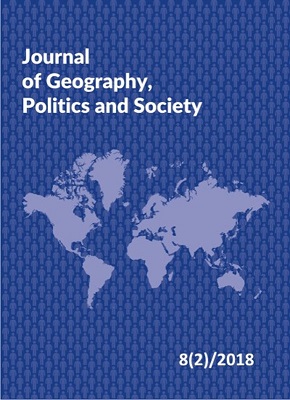Russians in Ukraine – Geodemographic Dynamics of the Post-Soviet Period (Results and Perspectives)
Russians in Ukraine – Geodemographic Dynamics of the Post-Soviet Period (Results and Perspectives)
Author(s): Sergey SushchiySubject(s): Social history, Demography and human biology, Transformation Period (1990 - 2010), Migration Studies, Inter-Ethnic Relations, Politics and Identity
Published by: Wydawnictwo Uniwersytetu Jagiellońskiego
Keywords: Russian population of Ukraine; demographical dynamics; biological and ethnic community; middle term forecast; outward migration flow; assimilation;
Summary/Abstract: The article studies quantitative and spatial dynamics of the Russian speaking population of the post soviet Ukraine. The factors accelerating the demographic shrinkage of the Russians of the country by 3 million people during 1989–2001 are analyzed. On the basis of a comparative analysis of the results of the 2001 Ukrainian census and the data of the ethnic and linguistic surveys of the Ukrainian population the conclusion is drawn that the core role in a prompt reduction of the number of the Russians belong to the assimilation. The analysis of the dynamic trends of the last several years allows affirming that within the borders of the modern Ukraine without the Crimea and the Donbas which is politically independent from Kyiv there may live about 4.1–4.5 million Russians. The study of eventual middle term prospects prove that by 2030 the given number may reduce to 3.3–3.7 million people. The important role in this process will play all three factors of the number dynamics: natural decline, outward migration flow, assimilation. But the core role in the demographic shrinkage of the Russian community belongs to the assimilation or the transition from the Russian to the Ukrainian self identity of a part of the biological and ethnic community of Ukraine. However the number of the Russians in the country recorded by all ensuing censuses of the population was lower than the real ethnic and cultural presence of the “Russian world” in Ukraine as the above mentioned identity transfer was not accompanied by an acculturation. The Russian language and culture not only dominate in the Russian environment but also keep a weighty role within the dominant country group. Only by prolongation of several decades of tough of a severe anti Russian course Ukraine is capable of undermining the social and cultural potential of the Russian world.
Journal: Journal of Geography, Politics and Society
- Issue Year: 8/2018
- Issue No: 2
- Page Range: 26-32
- Page Count: 7
- Language: English

